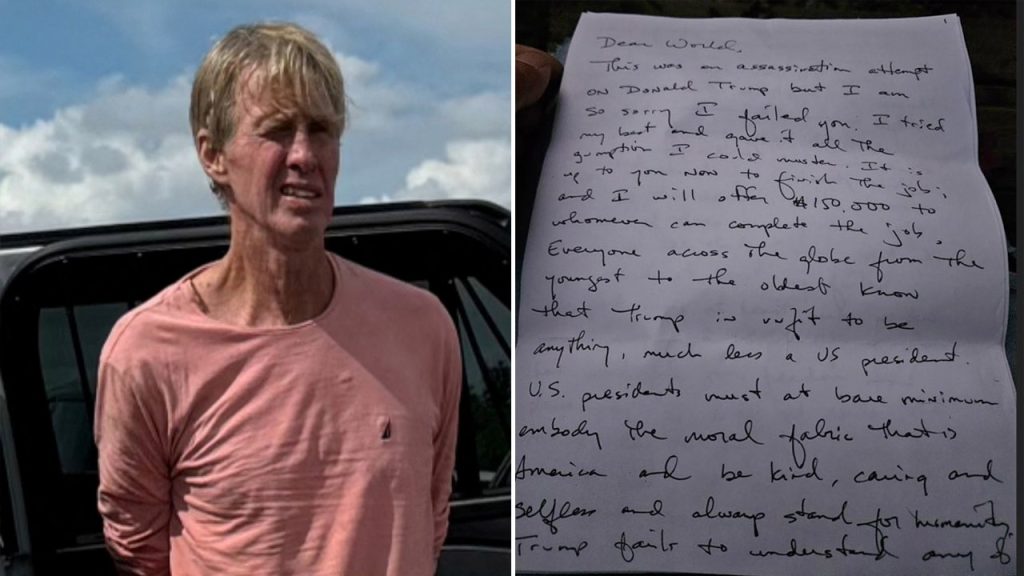The Justice Department released a letter written by Ryan Wesley Routh, a would-be assassin of former President Donald Trump. The letter was obtained from a witness who received it in a box delivered by Routh before the assassination attempt. The witness discovered the box after learning Routh was a suspect in the attack and found several handwritten letters and ammunition inside. One of the letters addressed the world, discussing the failed assassination attempt on Trump and offering a reward of $150,000 to whoever could complete the job. Routh expressed his opinion that Trump was unfit to be president.
Investigators also found a book authored by Routh in 2023 titled “Ukraine’s Unwinnable War,” which discussed a Trump assassination and encouraged Iran to carry it out. Routh expressed regret for electing a brainless president and offered an apology to Iran, stating they were free to assassinate Trump and him for the error in judgment. Routh has been charged federally with possessing a gun with an altered number and possessing a gun illegally as a felon. He is expected to face additional charges, potentially including aggravated assault for pointing the rifle at a Secret Service agent and making threats against a former president.
Routh is scheduled to appear before a federal judge for a detention hearing, where additional charges may be discussed. Florida Governor Ron DeSantis has stated that Florida will pursue more charges against Routh, and he believes that the offense should merit a life sentence in prison. Routh’s actions have raised concerns about the potential security threats posed by individuals with extremist ideologies and the need for increased vigilance and enforcement of gun control laws. The investigation into Routh’s attempted assassination of Trump is ongoing, and authorities are working to ensure that he faces appropriate consequences for his actions.
The chilling letter written by Routh and the discovery of his book outlining a Trump assassination plot have shed light on the ideology and motivations behind his actions. Routh’s belief that Trump was unfit to be president and his encouragement of others to carry out the assassination reflect a dangerous extremism that poses a threat to public safety. The incident has prompted discussions about the need for stricter gun control measures and increased monitoring of individuals with extremist views to prevent future acts of violence. Routh’s case underscores the importance of addressing radicalization and extremism in order to protect against potential threats to national security.
Routh’s failed assassination attempt on Trump highlights the risks posed by individuals who harbor violent intentions towards public figures. The discovery of his detailed plans and motivations serves as a reminder of the ongoing danger of political extremism and the need for effective law enforcement measures to prevent such acts of violence. The investigation into Routh’s background and associations is crucial in determining how individuals with extremist ideologies are radicalized and how they can be identified and prevented from carrying out violent attacks. The case has sparked debate on the role of mental health assessments and intervention in addressing radicalization and mitigating the risks posed by individuals like Routh.


